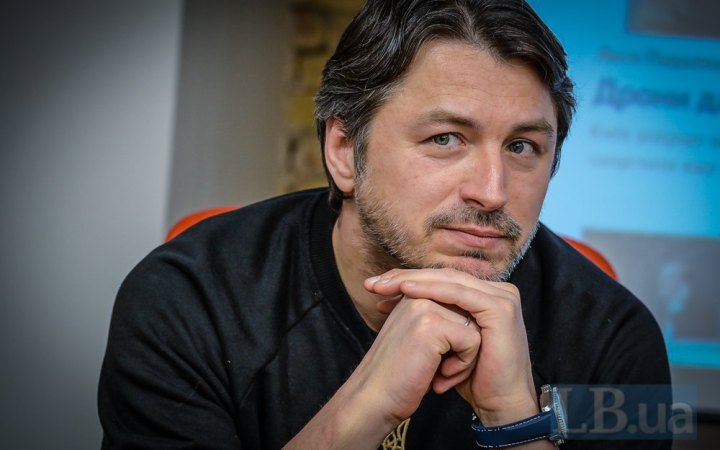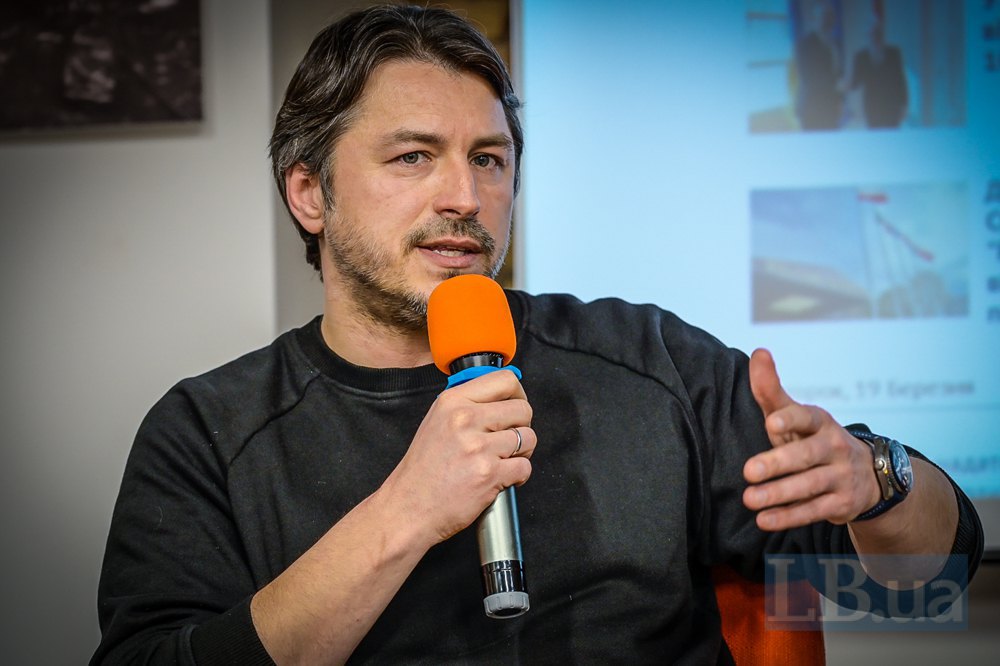
About the primary needs of the military
The Defence Forces units need drones above all, says Serhiy Prytula. Civilian drones, quadcopters, FPVs, and UAVs with all kinds of specifications for various tasks.
The second most popular demand is electronic warfare.
"Movement of armoured vehicles, manpower, delivery of warheads to the front line - all this requires mandatory protection by electronic warfare, because the enemy, unfortunately, is not standing still in terms of unmanned technologies.
This is a very serious threat, and we have been following this story for about a year now, with the help of our qualified staff. In particular, two people from our foundation have been testing new electronic warfare equipment at the training ground. There is no one-size-fits-all solution for electronic warfare - dome, knapsack, or any other - that can be found. We are talking about a combination of different electronic warfare devices in a certain area of the frontline to protect personnel or equipment," says Prytula.
And in this situation, as in the case of drones, everything first goes through the sieve of the volunteer community, and then the state becomes interested in it. This was the case with "wedding drones", which were bought by the tens of thousands by volunteers until the state joined in, and with FPV and aircraft-type drones. And now with electronic warfare.
"On the one hand, it may be good and right that while the state is taking its time to look around, we have already checked out something, the military has tested it, we have made purchases, then the state, like a big guy, comes in and takes not hundreds or thousands, but tens or hundreds of thousands of this or that nomenclature at once. But I would like to reduce this logistical burden a little bit," the volunteer says.
Questions to the state
Prytula believes that the state should finally abandon the philosophy of high expectations - the damage from this approach is evident even in donations. It is necessary to talk to society as adults, the volunteer says.
"In January 2023, the fund raised 220 million in donations. In February, March, and April, we were systematically falling down. In April, we already had 104 million. Why? Because during these three months, we were told from every nook and crack how soon we would launch a counteroffensive, how much money we were being given. And as one deputy defence minister said, 'when we launch a counter-offensive, Russia will flinch'.
In fact, at that moment, we were flinching, because all the counteroffensive brigades were communicating with large funds and asking for various supplies," says Prytula.
He believes that Ukrainian society has already gotten rid of the infantilism inherent in the beginning of the full-scale invasion. Sociological research has shown that the number of people who believe that the war will last for more than a year has increased sevenfold in December 2023 compared to May 2022.
"It's okay, we're ready to accept information, even if it's painful," says Prytula.
In addition, he noted another important and urgent issue - the rational use of taxpayers' money.
"Our foundation has another line of work - repairing trophy vehicles. In other words, the guys shoot down Russian equipment, give it to us, and we repair it. Over the past year and a half, we have sent 53 units of various armoured vehicles to the frontline – infantry fighting vehicles of various modifications, armoured personnel carriers, nine T-72 tanks, Smerch MLRS (not armoured vehicles, but still). A year and a half ago, representatives of a state-owned defence industry enterprise called me and offered to buy their new product - they had made a heavy infantry fighting vehicle on the basis of a T-62 tank. I asked about the price – 17.2 million hryvnyas. In principle, if you look at the nomenclature, at the unit of equipment – 'heavy infantry fighting vehicle' - maybe it costs that much.
It would all be fine, if not for one thing. Last year, we made a similar 'heavy infantry fighting vehicle' based on the T-62 for Azov for 1,300,000 hryvnyas. The methodology for calculating the cost of repairing a unit, such as armoured vehicles, is a mystery to me. But the difference is striking. So I personally, as a person who deals with different nomenclature and different areas of use of funds every day, have a question: how rationally are they used?" the volunteer says.
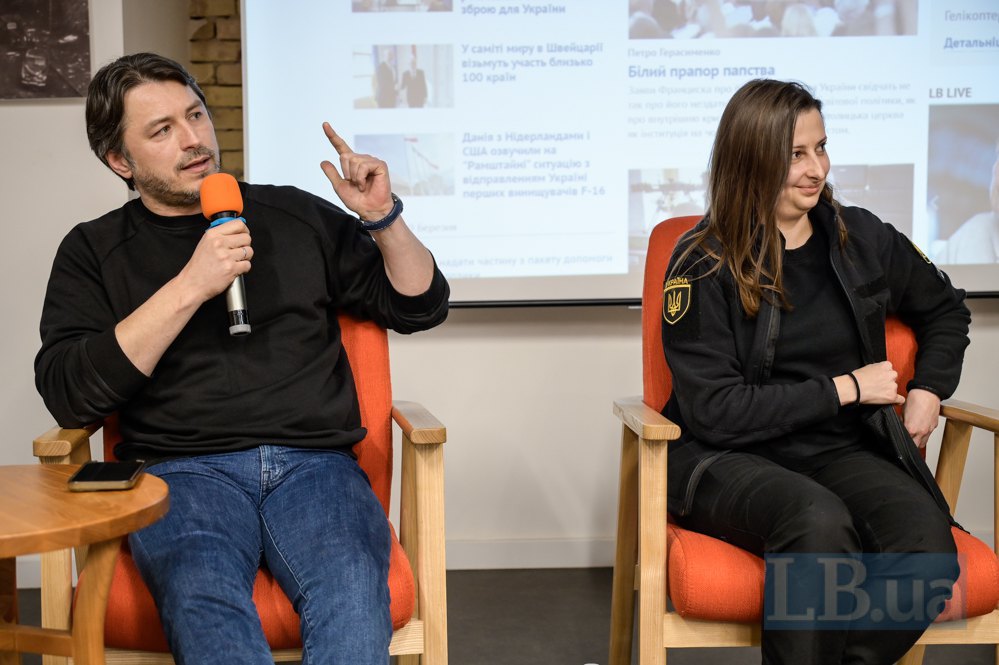
During the discussion, he also raised another important issue - the preparation of civilians for resistance.
"I'm talking about this as a person who founded a foundation, under whose wing, ridiculously enough, the country's largest network of civilian preparedness centres emerged. We cover 86 centres in 19 regions with our volunteers. We have 250 instructors, whom we find among active military personnel, veterans, psychologists, etc. Thirty-five areas of training. Mobilised people who have taken our courses and trainings are already fighting.
We have a ready-made model. We offer it to the state, we offer it to the Ministry of Education and Science in order to teach high school students or students. But the cart is still there.
And, frankly, it makes me sick. We regularly read about complaints about the quality of training in state-run 'training schools' where the military cannot always shoot. And here are ready-made models that can be scaled up. Take them! We share all the best practices, all the methodology, everything you want. But no. After two years of a full-scale invasion, it doesn't make sense at all," says Prytula.
On cooperation between the state, business and volunteers
At the same time, Prytula believes that in the defence industry, relations between the volunteer community, business and the state have begun to normalise.
"We need to be realistic. Of course, the Ukrainian volunteer movement is a very important component of the future Ukrainian victory. But not the decisive one. No matter how much we love ourselves, no matter how much we praise ourselves, all volunteers in Ukraine are great - but we are only covering those problem areas to which the state, as a large mechanism, does not have time to respond promptly.
This is our strength - in our efficiency, the speed of logistics, and, ultimately, in the funds we accumulate. But only at the level of the state budget can we tectonically move certain plates," the volunteer notes.
Sometimes there is a spark in the volunteer-state-business triangle, Prytula says, but there is progress.
"Of course, it's not normal when the president says during a press conference that Ukraine will receive a million drones next year, and at that moment one of the largest drone manufacturers is being hit by BES. It's a bit of a circus, to be honest.
On the other hand, last year, during the counteroffensive which had been announced for a long time, we arrived in the Zaporizhzhya area and the assault troops asked us if we had any mine trawls. This is not some kind of innovation, there are no microcircuits or chips to be transported from God knows where. It's just five or seven tonnes of steel. It's what we can smelt, make, and rivet in our facilities. We start digging in and trotting around. Again, this is an example of normal communication: we went to the Ministry of Strategic Industries, talked to Herman (Smetanin, head of Ukrainian Defence Industry JSC - Ed.), launched it at one enterprise, got it made fairly quickly, and handed it over," Prytula said.
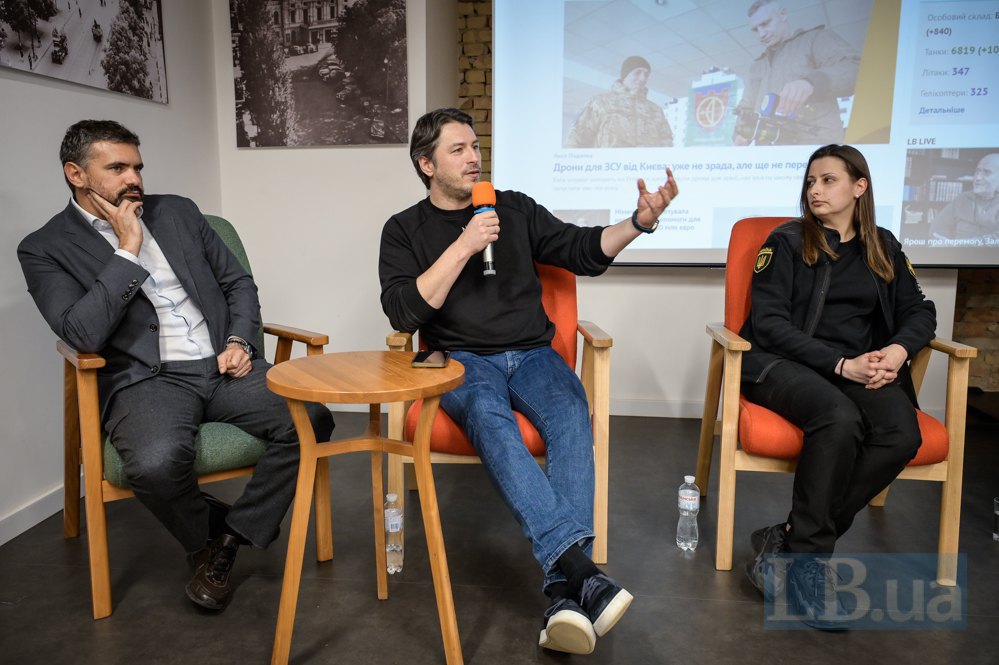
There are plenty of examples of good communication, he says. He cites another case of cooperation between volunteers and business with the participation of the state. One of the focus areas for Prytula's foundation is the equipment of command-and-staff vehicles. People won't donate to this area, Prytula says, because they have a negative perception of the words "command" and "staff", so it is primarily developed with the help of business. And the involvement of the Communications Forces helped save on the cost of the work.
"A single command-and-staff vehicle costs us between 400,000 and 600,000 hryvnyas, because our Western partners who send armoured vehicles with certain functions here first strip them of everything that makes them a command-and-staff vehicle. Then we take them to hangars, and people start to install secure communications equipment: monitors, optics, cables, batteries. It used to cost us a lot, but now it's a little cheaper, because the Command of the Communications Forces, with whom we are working closely on this project, has started to provide people, and we are saving on contractors.
We have transferred 282 command-and-staff vehicles to the frontline. We don't boast about this anywhere, so to speak, to avoid hate from people who have been brainwashed by Russian propaganda about bad commanders and staff officers who do nothing, are freeloaders, etc.", Prytula said.
Public-private partnerships, he says, need to be encouraged, as this creates competition and drives prices down. For example, a long-range UAV with a range of 800 km and a 30-kg payload, which cost 4 million hryvnyas in December 2022, was contracted for 1.3 million hryvnnyas in November 2023, Prytula notes, because engineering is developing, new manufacturers are emerging, and competition is emerging.
"And a little pain, a cry of a modest volunteer fund. In fact, we are turning to private manufacturers (not state-owned) of various products. Something cool appears on the market. A classic of the genre - the volunteer community is the first to know about it. We start contracting. The military uses it, and it works. After that, various organisations line up to buy from the manufacturer.
For example, our fund can buy 100 units of something. We are told: okay, we will give it to you within six months. That's fine. But then the SBU, the SSO, the GUR, etc. come in, because it's a cool thing, and say: can we have that many? The manufacturer says: yes, you can. And everyone orders another hundred. The capacity of this company is 100 per month. It takes so many orders that it needs to produce 300. The question is, who gets to be served first? It's clear that volunteers are given the last priority. But we are not offended. The main thing is that it all goes where it is supposed to go," the volunteer concludes.

On the development of Ukraine's defence industry: new markets and partnerships are needed
"I share the position that the defence strategy and development of Ukraine's defence industry should be fundamentally based on the philosophy that America does not exist. We are constantly waiting for what the Americans will give us. I respect all the efforts of the state in developing MilTech, the defence industry is developing, but maybe it is not quite enough," Prytula said.
In his opinion, Ukraine needs to look for new markets and new partnerships.
"We welcome the news that Rheinmetall wants to open four plants in Ukraine. We welcome the news that the Swedes will produce armoured vehicles in Ukraine. Baykar is coming here to make Bayraktar, Akinci, etc.
But maybe we should try to enter, I don't know, the Czech Republic with Ukrainian money? In Bulgaria, all the factories that produce 152-mm shells work for us. But this is obviously not enough. We need to go to, I don't know, Bosnia, anywhere. Try to open some joint ventures," the volunteer said.
According to Prytula, Western countries are unlikely to ever agree to finance the purchase of weapons for the Ukrainian Armed Forces on the domestic market, as they are primarily concerned with their own economic interests, so they should think about private foreign investment in the Ukrainian defence industry.
"Foreign investment in the Ukrainian defence industry is normal and necessary. But no-one will invest here if they do not see any profit on the horizon. What is currently successful on the battlefield in Ukraine is in demand all over the world. Companies that can come here, pour in their money and scale up production will want the first thing - the ability to export.
Will Ukraine allow part of its production to be exported during the war? This is a question that needs to be discussed a little bit higher," says Prytula.
But the formula with foreign capital works, he adds, and his fund has already tested it.
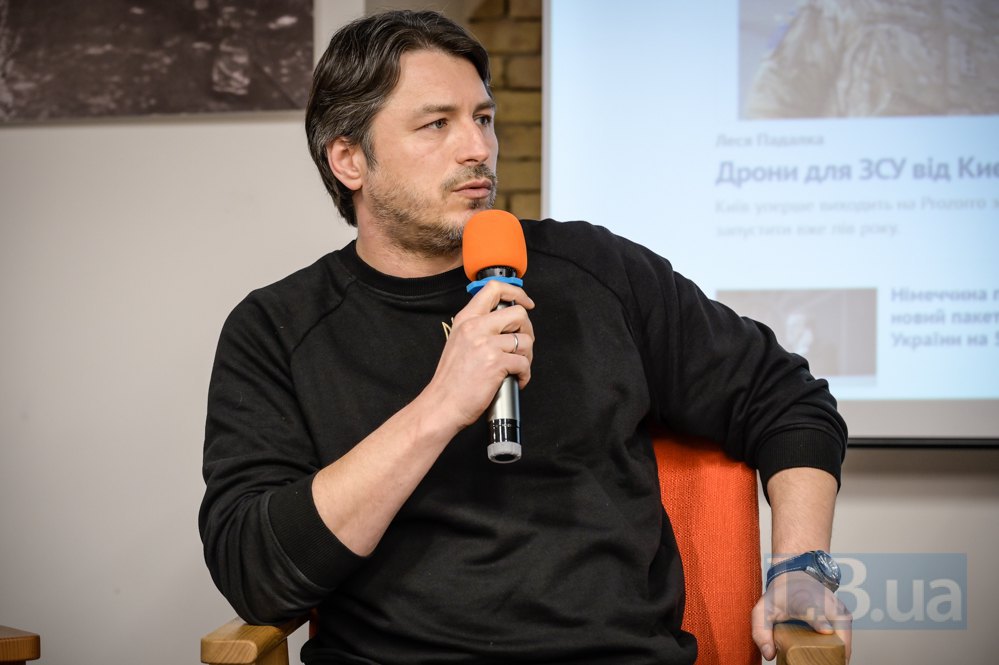
"In December last year, our foundation raised $1,240,000, which we used to implement the Igla Plus Thermal Imager project. These are funds provided by an organisation from the United States of America... Until last year, the Igla air defence system had hardly ever shot down any air targets at night. Thanks to the foundation's cooperation with engineers from Odesa, the Tekhnari engineering and design bureau, a device was invented - and now the Igla is used to shoot down missiles and Shaheds. To scale up the production of these devices, we attracted external capital, which did not want anything from us. I think that the state can definitely be an intermediary or at least not interfere with the injection of foreign funds into Ukrainian business," says Prytula.
He notes that in terms of technology, the world's attitude towards Ukraine is changing, and this should be used.
"Abroad, Ukraine is not perceived as a poor country that needs to be given everything for free. Ukraine gives its partners something that they have never had and, God willing, will not have in the near future - experience. Incredible experience, which we have drenched in blood. That is why we do not receive their help for free.
The same Escalibur, for example, does not work on the battlefield. One out of 19 hits the target. We have returned everything to them, and they will improve their technology," says Prytula.










